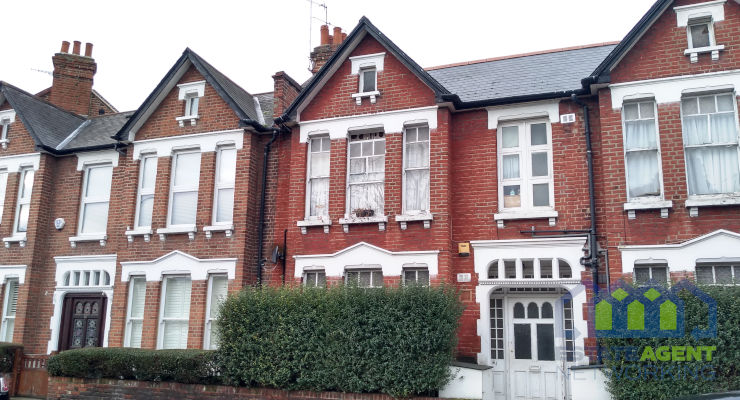Redefining Fractional Ownership And Property
Fractional ownership has become increasingly popular in recent years and is traditionally, common at beach and ski resorts.
However, investors are often baffled by its multiple forms, terminology and misconceptions. With increasing numbers of new developments selling property on this basis, it’s worth understanding this style of investment.
Here we explain the main forms of fractional ownership, how they work and the advantages and disadvantages of investing.
Basic Fractional Ownership
The simplest form of fractional ownership consists of buying a fraction of a freehold of a unit in a certain location. The property investor pays annual dues towards maintenance and upkeep.
Destination Clubs
With this form of fractional ownership, investors are offered membership of a club which permits them to a certain number of nights stay at a range of properties around the world, including Europe, America and the Caribbean.
However, it importantly does not include any ownership of the actual properties.
This is a growing sector and the trend in recent years has been for equity-based destination clubs. These are investment funds by another name and acquire a portfolio of properties at the top end of the market, jointly owned by the shareholders. Some have a limited lifespan and will distribute proceeds between shareholders when the portfolio is sold.
As well as a membership fee, annual dues are payable.
Private Residence Club (PRCs)
This is the upmarket end of the fractional ownership market with higher prices, more amenities, bigger units and the more desirable locations. In terms of ownership and legal structures, they are usually the same as basic fractional investments.
Exchange Programmes
Many PRCs and fractional ownerships are affiliated to exchange programmes. Owners can swap some of their designated time at their home resort for nights at other partaking resorts around the world.
The exchange programmes range in size from just a few resorts to several hundred.
Is Fractional Ownership Different To Timeshare?
With timeshare, you don’t own a physical asset, but you are purchasing the right to use one or more holiday properties at a specific time. But with fractional ownership you are buying a percentage share of the actual physical property: instead of having one owner, each property has effectively 4 to 12 owners.
The owners share the benefits of the asset such as income sharing, usage rights, priority access and reduced rates with other stakeholders. Unlike timeshare, you can transfer ownership or sell your fraction on.
One of the risks of fractional ownership is not getting the weeks you want, when you want, so taking advantage of the full 6 weeks may not always be convenient.
Is Fractional Ownership Legal?
Yes. There are certain similarities between fractional ownership and standard property purchases, although your name is registered on a fund that owns the property and you receive a share certificate stating what fraction you own.
Why Is Fractional Ownership Becoming More Popular?
The rise in popularity of this style of investment is likely becoming more popular because property buyers are looking to limit their exposure to property, but still want access to luxury resorts. With the overseas property market taking a hit, fractional ownership is also seen as another way of divesting unsold stock.
Is The Sector Regulated?
Property investors should be mindful that it is not properly regulated everywhere. The US and Canada regulate the fractional ownership sector; however, it is still fairly new to Europe. Potential buyers must, therefore, be on their guard and, like any property purchase, work only with trustworthy organisations.
Be Cautious
Anything that proclaims a ‘sure fire way to make money’ should raise your suspicions, as should unsolicited mailshots about fractional ownership and potential ‘investment’ opportunities in land or business opportunities. Fractional ownership is less about making money and more about acquiring a lifestyle.
Should I Buy Off Plan?
You should follow the same rule of thumb as you would when buying a property outright. For example, check out the reputation of the developer, how they plan to fund the build and whether planning permission has already been granted.
Ensure you deal only with reputable companies that have all the legal permissions and necessary funds in place.
Should I Consider Fractional Ownership in London?
Ski and beach resorts have been the traditional areas for fractional ownership; however, these destinations may only be used for a limited period of the year due to the season timings.
In comparison, London, with its population of 8M, provides constant entertainment with festivals, events and exhibitions throughout the year. Whenever you visit, you will always be visiting at a time when the capital is bustling. The capital is also ideally situated to access the rest of Europe with five international airports within 45 minutes of Central London.
Consequently, London’s real estate and housing market are diverse. Fractional ownership enables buyers to part-own a residence in a far more desirable location, such as Kensington or Chelsea, than may be possible if they were buying a unit outright. This means their property has the greatest chance of consistent price growth. It is expected that worldwide demand for luxury properties in the key London neighbourhoods will continue and these properties are far more resilient in periods of global economic downturns.
Can I Get A Mortgage?
Simply, no you cannot get a mortgage. If you need to raise finance, you would have to arrange it through a specialist broker or use existing savings. If you have enough equity in an existing property, then this can be another avenue of raising finance.
Will My Property Purchase Rise In Value?
Any rise in value, as well as fall in value, will be subject to fluctuations in the property market. Any rise or fall in property value will be limited to your share of the property.
Can I Sell?
Yes. There are several exit options, although these will differ depending on what country you are investing in and when it comes to buying and selling you must remember you are not dealing with a traditional property transaction.
You could, for example, offer your share to the existing co-owners, but other resorts may have a resale service.
You could also sell the whole of the property after a, say, 15-year period with some newer schemes. However, you would need the consensus of all co-owners.









